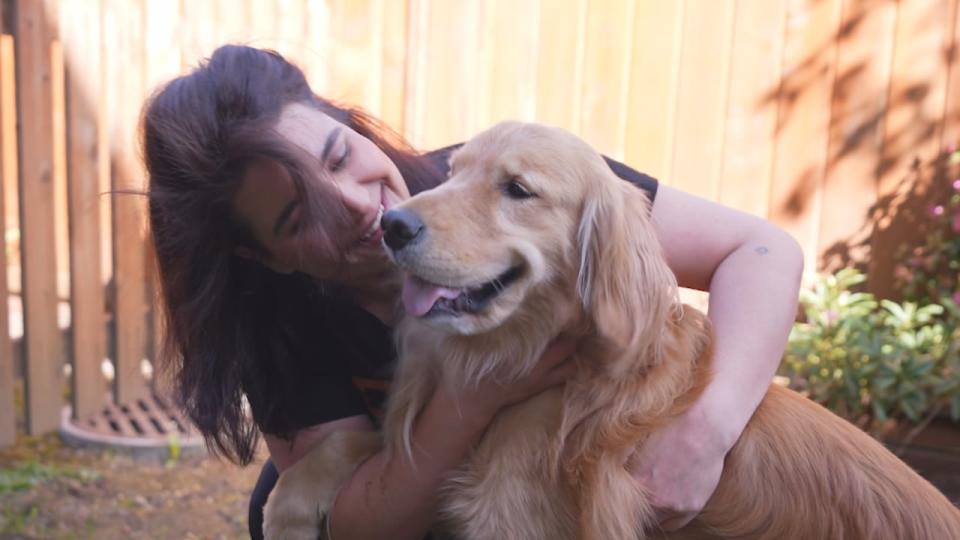Judge orders shared custody of pet dog under new B.C. law

A golden retriever named Stella is now part of legal history in B.C. after an upper court decision based on new laws that recognize pets as family members, not just property.
The ruling is the first of its kind and stems from a claim filed in B.C. Supreme Court in New Westminster by a woman seeking to have exclusive care of the dog after she and her boyfriend broke up last year.
But in his reasons for judgment, Associate Judge Scott Nielsen ordered that custody of Stella be split evenly on a week on/week off basis.
"Both the claimant and the respondent have shown a deep concern about the well being of Stella, and I am satisfied that in the circumstances the custody of Stella should be shared on an interim without-prejudice basis," said Nielsen.
The decision comes three months after amendments made to the Family Law Act clarify that pets or "companion animals" are members of the family and more than the property of whoever bought the animal.
Victoria Shroff, a lawyer who specializes in animal rights, says having a B.C. Supreme Court decision based on the new legislation is an important milestone.
'What's so significant is the way the judge says ... that animals are sentient beings, and we're going to analyze this case in light of that," said Shroff, who was not involved in the case.
"Any time an upper court starts to acknowledge the fact that animals are part of the family — they are our furry family members — it doesn't mean they're not still property under the law, but it means that they have an elevated status above that of a toaster."

A B.C. judge has order that Stella the golden retriever be the subject of shared custody between her owners, a couple who split up last year. (Tanya Fletcher/CBC)
The claimant, Sahar Bayat, a nurse, and her former partner, Omid Mavedati, a veterinarian, bought the dog in August 2020 when they were living together. The relationship ended in February 2023, according to the court transcript.
$60K in legal fees
Bayat told CBC News she went to a lawyer after her ex took sole possession of Stella in June of last year because only his name was listed on the dog's birth certificate.
She said she spent more than $60,000 on a lawyer and legal fees to bring the custody dispute to court.
"It was all worth it and honestly I would do it all over again," said Bayat. "I just couldn't live with the pain of regret. I had to fight for her."
Bayat said the new legislation made all the difference in gaining shared custody.
"I'm very happy for the new law," she said. "There's a difference between her and the furniture."
In his decision, Nielson said it was clear Bayat and Mavedati both love the dog, as evidenced by the money and effort invested in the legal proceedings.

Victoria Shroff is a Vancouver-based lawyer who specializes in animal rights. (Submitted by Victoria Shroff )
He said changes to the laws made in January "essentially put the ownership of a companion animal, such as Stella, in the context of something that goes beyond ownership of a chattel."
The decision outlines how, under the new legislation, the court must now consider eight factors, including the circumstances in which the animal was acquired, the extent to which each party cared for it, any history of family violence, and the bond the pet has with any children.
"B.C., being the first province in Canada to have legislation like this, to say what we're doing here is we're actually treating animals as beyond merely property ... that is huge," said Shroff.

 Yahoo Sports
Yahoo Sports 